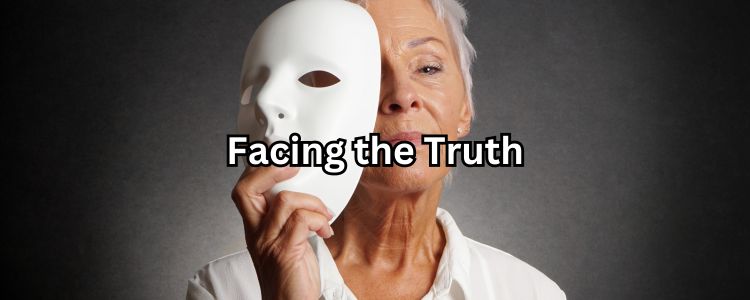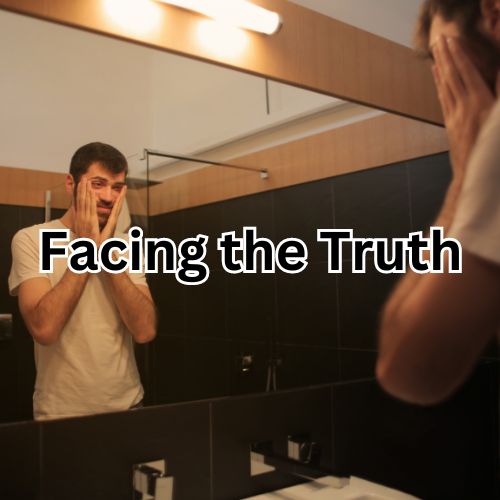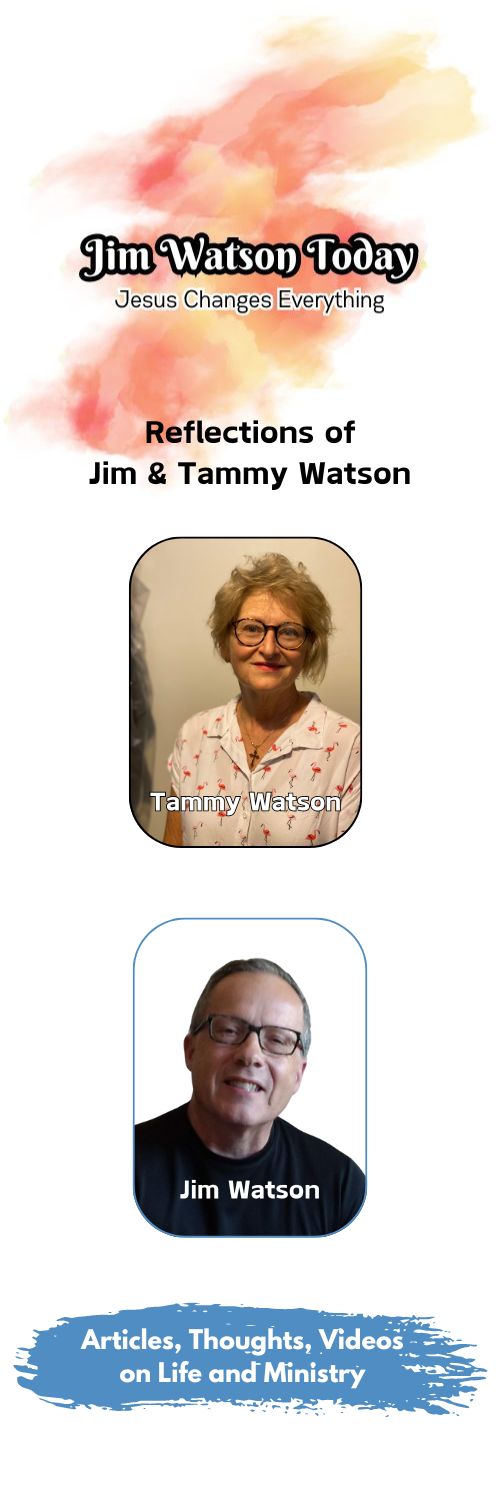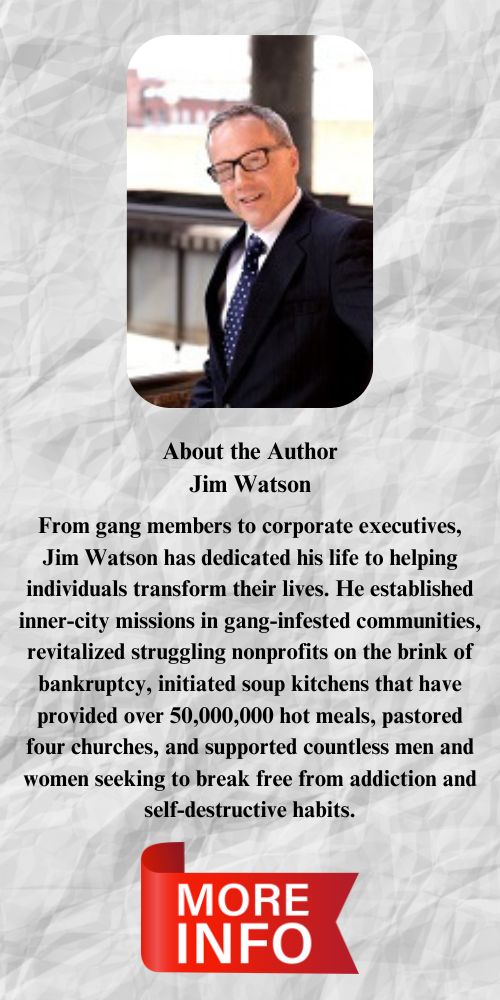
Facing the Truth

Facing the Truth
You will sometimes fail in your battle to change your life. Making drastic personal changes can be a fierce battle, and on your journey to victory, you will experience many letdowns and defeats.
When failure occurs, you will be tempted to wallow in guilt, replay the incident repeatedly in your mind, and let it destroy you. You will experience frustration and sorrow. You may not be able to think straight, and you will feel hopeless, unable to imagine life without the destructive habits that dominate your life.
Even worse, you might refuse to admit responsibility for your condition and resort to blaming other people, genetics, or your background for your failure. Instead of using failure as a tool to advance your life, you sentence yourself to a life of bitterness, misery, and constant decline.
I have never met a person who has not failed at something in life. All of us fail. For some, failure is a stopover on the way to success; they view failure as a teaching moment, an educational tool that prepares them to take life to another level. Others learn the wrong lessons from failure and never experience the fruit and joy of a meaningful life.
These false lessons can teach you:
- not to trust others because they might hurt you;
- never take a risk because you might fail;
- to be careful about trying something new because it might disappoint you;
- to quit believing that your dreams are possible;
- that success is only for other people.
Seeing failure as an opportunity instead of a destination does not diminish its dreadful emotional influence or lessen its impact on your life. Failure can cause real emotional pain and guilt. It may also ruin your finances, destroy your most significant relationships, and seriously frustrate your efforts to achieve your goals. Sometimes, failure’s impact on your life can take years to turn around.
I listen to many podcasts about entrepreneurship. Most people on the podcasts are young and successful and have endured many difficulties to succeed. One of the most oft-quoted sayings I hear is, “Fail early and fail often.” Others say, “Fail your way to success.”
I understand the truth they communicate. The fear of failure is a paralyzing condition that afflicts most of humanity. It prevents most people from achieving success and sentences significant portions of them to a life of dullness and mediocrity.
The fear of failure is a dream-killer. For those of you who have experienced real failure, perhaps even more than once, failure produced distressing consequences in your life. It made you feel ugly inside, like a loser who can never win. You felt:
- you had let down people who trusted you;
- guilt for making bad decisions;
- hopeless about your future;
- depressed.
You also experienced real, awful consequences because of failure:
- A mountain of debt
- Irreparably broken relationships
- Financial destruction
- A loss of employment
Failure should not be a goal or something you should desire because it can help you discover essential truths about yourself and the pathway to success. If you can avoid taking the wrong path, do not take it. It is not necessary to learn everything the hard way.
Still, what do you do once you have failed? How can it help you? What can you learn from it?
This article is written for men and women who have failed, hit bottom, and wrecked their lives.
Several years ago, a man in one of my residential programs asked me, “Who will ever hire me? I have five felony convictions. What’s the use of even trying to get clean?”
I responded, “Very few business owners will hire you with five felony convictions. Your best option is to start your own business.” I knew that someone had to tell him the truth. Otherwise, he would waste too much of his life living in a fantasyland.
This man had two choices: he could let his past determine his future by living like a convicted felon without any options, or he could learn from his past actions and develop a new plan for his life.
The second option requires answering the following questions: What lessons can you learn from past actions to help change your future? What does your past teach you about yourself? Learning from your past makes you less likely to repeat it.
The unfortunate truth about life change is that most people must experience terrible emotional pain before recognizing the need to change their lives. Even when they make changes, they may fail to stick to their plan and eventually revert to their former lives. They waste valuable lessons their pain and loss could have taught them. Regrettably, their next fallback experience is usually more painful. Over time, the experiences get even more intense and consequential.
“Fail early and fail often” may be a great philosophy for the business sector, perhaps even the nonprofit sector, but it is not a wise philosophy for your life. When you choose a lifestyle that conflicts with God’s word, purposefully or by your actions, you choose disaster. Without some dramatic intervention, you will create a personal hell for yourself that may hold you captive for many years.
Failure rarely leads to success for people trapped in destructive behavior patterns. Instead, it leads to more disappointment and personal destruction.
Most people continue to fail and revert to ungodly lifestyles because they refuse to learn valuable lessons from previous failures.
Many of you reading this article may have habits and worldviews contrary to God’s will for your life. Try as you might, you find yourself stuck, unable to live a life that honors God. Others of you have family members and friends held captive in the lifestyle of addiction. You want to help them.
You may have made decisions that caused you to fail. Once you fail, you can’t wish it away. You cannot change the past; it is beyond your control. However, you can control your reaction to your setback. Your response to failure will determine whether it is a brief experience or a permanent description of who you are. No one is a failure who decides to learn from their mistakes and do something positive about it.
Failure can be like going to a vocational school to learn a trade. There, you spend a trivial amount of time on theories and abstractions. Instead, your primary focus is on learning a skill to pay the bills and give you a comfortable life. In the same way, failure trains you to succeed in life—your job, relationships, responsibilities, etc.
If you listen, failure will teach you the truth about yourself. It will reveal to you the inherent dishonesty associated with an ungodly lifestyle. For a time, self-deception may relieve some of your pain temporarily. Ultimately, though, your pain returns and exposes you as the responsible actor for the damage and chaos in your life.
Furthermore, as hard as this may be to accept, you have spent too many years trying to convince yourself that you are not liable for your present condition. It is always someone else’s fault; you are never to blame. Even when you take responsibility, you do it primarily to influence others to be patient with the chaos generated by your behavior.
To truly learn from your failure, you must accept personal responsibility for the actions that led to your destruction. If you do not, you condemn yourself to an endless cycle of setbacks and failure.
FACE THE TRUTH ABOUT YOURSELF
You must not shrink away from the lessons of failure. Be relentless in your pursuit of the facts. Whatever remains hidden will someday resurrect itself, short-circuiting your development as a Christian and bringing you unnecessary pain and suffering.
Sometimes, the truth will be almost too much for you to tolerate, so to minimize your suffering, you will try to justify your failure, make excuses for your behavior, and escape the emotional consequences of knowing the truth.
In our therapeutic society, we have become experts at shifting blame. Despite all the evidence to the contrary, we proclaim the universal goodness of all human beings. Instead of looking inward, we look for external reasons or causes to explain our destructive behavior. In one sense, this idea foreshadows the end of personal responsibility.
However, at some point, you lose the ability to be encouraged by motivational one-liners and messages. Positive thinking has become a source of discouragement and disappointment, and it no longer works.
Even in Christian circles, we try to make ourselves imagine we are creatures of infinite value. After all, the Creator of the universe sent his Son to die on the cross for us. Indeed, Jesus would not die for us if we were worthless junk. For such a sacrifice, it is reasonable to assume there must be something of fundamental worth in each of us, something worthy of his death. Moreover, we continue by saying, “God didn’t make junk.”
Although I do not wish to call anyone junk, the word may help you understand your condition and God’s relationship with you. Junk is a word that knocks down the pretensions that prevent you from acknowledging responsibility for the horror and pain in your life.
Sometimes, your feelings of guilt and worthlessness are so overpowering they bury all your attempts to maintain a positive attitude. Despite all your efforts to place blame elsewhere for your current predicament, you know the truth about yourself. You know what kind of person you have become. When the Bible says in Romans 3:10, “None is righteous, no, not one,” you know it is talking about you. You are too smart to lie to yourself forever.
Truth has a funny way of overwhelming all your false ideas about yourself.
The word “junk” may be an insult to your self-esteem. I’m not too fond of it either. Like most people, you can admit you made mistakes; but junk?
What exactly is junk? Junk is something that can no longer fulfill its purpose. It is useless and without value. Although it may have been valuable once, it lost its original worth because of wear and tear, abuse, and lack of care. Eventually, it ends up in the garbage, at a junkyard, or in a dumpsite littered with other junk.
Then along comes the junk collector who sees potential value in the object. The junk collector restores the worth of the junk and returns it to usefulness. It is no longer junk.
The Bible has a definite view of human goodness. Please read these verses:
But we are all as an unclean thing, and all our righteousnesses are as filthy rags.
Isaiah64:6(KJV)
As it is written, There is none righteous, no, not one: There is none that understandeth, there is none that seeketh after God.
Romans 3:10 (KJV)
For I know that within me (that is, in my flesh,) dwelleth no good thing: for to will is present with me; but how to perform that which is good I find not.
Romans 7:18 (KJV)
These are hard words, but fortunately, these Bible verses set the stage for the good news. The Apostle Paul spells out this great news by saying,
This is a faithful saying, and worthy of all acceptation, that Christ Jesus came into the world to save sinners; of whom I am chief. Howbeit for this cause I obtained mercy, that in me first Jesus Christ might shew forth all longsuffering, for a pattern to them which should hereafter believe on him to life everlasting.
I Timothy 1:15-16
I am so grateful that our God is a junk collector! We are the discarded junk; God recycles junk into something useful and productive, and this truth sets us free. We are free because God loves us despite ourselves. When the whole world proclaims we are worthless junk, we know that our God loves us and gave his life for us. Because of his sacrifice, we must not be afraid to admit the truth.
I once met two men who made their living scrapping junk. Every day, they would drive their pickup truck up and down the city’s alleys, looking for scraps of discarded metal and unwanted objects set out for garbage collectors. They sold the metal at the area scrap yards and the other items at flea markets. By turning unwanted junk into something useful and valuable, they could pay the rent and feed their families.
God can take the mess you have made of your life and use it to change your future.
Recognizing the truth about yourself can be a catalyst for change. Once confronted with that truth, you can ignore the facts or decide you no longer want to be that person. You choose to change.
If you want to know the truth about yourself, ask God for help. Why compound your pain by spending years living a lie? After all, how can you begin the change process without knowing what needs changing? In Psalm 139:23-24 (KJV), we read,
“Search me, O God, and know my heart: try me, and know my thoughts: And see if there be any wicked way in me, and lead me in the way everlasting.”
FACING THE TRUTH ABOUT ME
I looked at my wife some time ago and said, “Honey, if I hadn’t been such a loser, I never would have met you.” As you might imagine, she was not overly impressed with my statement. Most people would have interpreted my words as a significant putdown, an insinuation that if I had been more successful in life, I could have done better in choosing a marriage partner.
That is not what I meant at all. Except for knowing Jesus, my relationship with my wife is the greatest thing that has ever happened to me. She brings me happiness and joy. My best moments of the day are the moments I spend with her. While I am quickly bored with much in life, my wife has never been anything less than exciting to me. I consider her the most inspiring person I have ever met.
My statement was rooted in my many years living way below my potential. Failure and self-destruction set me on a journey that delayed the fulfillment of God’s call on me. Still, if I had not ventured down the wrong path, I would have never met my wife. I would have been somewhere else.
While in school, I obtained a job at the Raleigh Rescue Mission, a place of hope for men and women who had lost their way. Addiction and bad decisions had brought its residents to a position of total dependence upon the generosity of strangers to meet their most basic needs. How could such terrible things happen in a person’s life, something so destructive they reduced a person to begging for food, sleeping in alleys and abandoned buildings, wasting meager resources on drugs or alcohol, and destroying every significant relationship that mattered?
Although I wanted to be polite, I finally broke down and asked them how such an awful fate had befallen them. Their explanations were thick with cynicism and bitterness: “My mother abandoned me.” “My father was abusive.” “My wife left me.” “People hurt me.” As I listened to their reasons for their homelessness and addiction, I noticed one common theme woven throughout each of their explanations– someone else was responsible for their predicament.
As I listened, I heard my voice in their descriptions of the disasters that wrecked their lives. It was scary to admit, but I realized I was just like them. I had spent too much time dodging personal responsibility for the waste in my life. It was always someone else’s fault, never my own. I portrayed myself as a victim, as though I bore no responsibility for the wreckage that shadowed my life.
Without realizing it, I had embraced victimhood. For me, it was a place of comfort and security, which shielded me from the pain of admitting the truth about myself: I was a loser. Yes, bad things had happened to me, and people had hurt me, but I chose to respond by lashing out and hurting myself and everyone else I knew.
As I learned the truth about myself, I whined, “How can God ever use a loser like me? Instead of growing my life, I wasted so much time and energy crying in my coffee, blaming others for my difficulties, and missing opportunities that would have changed my life’s whole direction. Will anyone ever trust me again?”
Shortly after that experience, I finally mustered up the courage to take personal responsibility for my actions and their results. As painful as it was, it began a new chapter in my life. Without my admission of guilt, I would have remained trapped in a seemingly endless cycle of failure and setbacks.
Looking back, I can hardly believe how the power of God’s love has transformed my life. He took my rebellion, selfishness, and pain and used them to help Tammy and me start ministries that affect thousands daily. What a wondrous God he is! He uses rebels, losers, and troublemakers—men and women like me—to accomplish his will.
God does not leave us in a swamp of uselessness. He brings us to a higher level, where we could not have journeyed alone. He uses our past to build a new future. Despite all the debris that battered my life, I learned that no success or failure is beyond his ability to redeem if you allow God to get a hold of you. He uses it all to accomplish his purpose for you.
IT IS TIME TO ADMIT THAT YOU ARE THE PROBLEM
Over the years, people have shared some unsettling stories about themselves. I have heard graphic tales of adultery, porn addiction, violence, murder, deception, robbery, etc. You name it; I have probably heard about it. I have also heard accounts of gossiping that kills reputations, critical attitudes that smother everyone they touch, greed that takes advantage of others’ misfortunes, selfishness that destroys relationships, jealousy that wrecks marriages, etc. The list is almost non-ending.
Many of these sad tales of personal destruction and failure shared the same storyline: despite the damage their actions caused in their lives and the lives of others, they were decent human beings. All the misery surrounding their lives resulted from trying circumstances, genetic dispositions, or abuse from family members or friends.
Maybe you cannot bring yourself to admit that you cause so much of your life’s pain. You are not alone. Most people cannot accept personal responsibility for their behavior. It is always more comfortable and less painful to affix blame elsewhere.
However, this practice makes it difficult to accept the truth about yourself, thus spoiling all your attempts to live a life filled with significance and purpose. Sometimes, I would guess you say whatever is necessary to suppress and hide the actual details behind your motives and actions. Yet, you will never defeat personal ungodliness without facing the truth about yourself.
. . . and ye shall know the truth, and the truth shall make you free.
John 8:32 (KJV)
Your failure can help you begin a new journey in your life. Here is what the truth teaches that will help you overthrow bad behavior contrary to God’s will and help you succeed in your life:
- Taking personal responsibility for your actions can help you overcome the insanity of endlessly repeating the same mistakes.
- When you admit responsibility for your life’s destruction, you are open to learning new behaviors that produce more positive results.
- When you finally confess the truth about yourself, you become willing to do whatever it takes to change.
- The ugly truth helps you to rely on God instead of yourself.
You may be unable to change your outside influences, but you can modify how you react to those forces. Ultimately, your reactions will determine your future.
Do you believe your past has ruined your future? If so, stop! God is stronger than your history. He will use it to create a life for you far beyond your comprehension. Do not be afraid to face the truth about yourself. Learn from your failures. God already knows everything there is to know about you. It does not scare Him.




